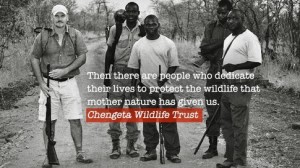These magnificent and soulful elephants can protect themselves and their families against predators and scavengers but they cannot fight against the rampant poaching that is sweeping the continent. For those of you who have been fortunate enough to meet with these magnificent giants in the African bush and have been privileged enough to catch a glimpse of the elephants unwavering honesty, compassion and intelligence will never forget that moment, or them. Listen and hear the Elephant song. (my poem) Elephants, for me are the essence of Africa and a great subject for debate. We all love Zimbabwe’s bush with it’s bewitching beauty and teeming wildlife.
From the ‘smoke that thunders’ (Victoria Falls) down to the mighty Limpopo, the sheer ruggedness of the granite dwalas will leave you breathless. Open a car window to let a fresh flow of air through and you will never forget the silence shredding cacophony of the cicadas or the mournful call of the rain bird (coucal) and the chuckle of the laughing dove. Deep wells of memories and desires weave a bridge between the future and the past but we need to concentrate on the present.
In Africa an elephant is slaughtered every 15 minutes. Through out the continent elephants are fighting for survival: a fight that is obscured in political murk and corruption. Elephant populations have declined in tragic numbers and sadly they are not the only wildlife under constant attack. Rhinos are also being slaughtered at an alarming rate and stats in South Africa have been horrific.
China has close business ties with Zimbabwe and is also the largest supplier of arms to the powers that be in Zimbabwe. Is Mugabe dependent on China? We are also aware that China is the biggest consumer of ivory and what does this mean for our Zimbabwean elephants?
The Obama administration in February published a national strategy for combating the multibillion-dollar poaching industry, relying on many of the same tactics used against terrorist organizations and drug cartels. The plan outlines a “whole of government approach” that includes working with other countries to increase the number of investigations and arrests, using high-tech gear to identify poaching hot spots, and targeting the bank accounts of wildlife traffickers and the corrupt bureaucrats who assist them.
Zimbabwe is one of the countries along with Mozambique, Tanzania and Sudan where elephants are slaughtered with complete indifference. Zimbabwe, due to political and militarized seizing of protected areas is at risk of becoming a smoke screen for ivory and rhino horn poachers. This is according to a non profit group’s report that investigates government collusion in wildlife trafficking.
What is the future? Life will go on on this harsh and timeless land. Hiding behind the mask of civilization, we need to ask ourselves a question.While the world watches, are we going to allow our country to become a hauntingly lonely bush full of ghosts?Courage does not have to be a gigantic roar. Let us stand up for our wildlife and support the brave men on the ground.
Chengeta Wildlife offer first class training and have just finished doing two weeks of intensive anti poaching tactics in Gache Gache.
The Tashinga Initiative defines support to the Parks and Wildlife Management Authority’s current protection and management programme in the Zambezi Valley of Zimbabwe.
‘The present socio-economic crisis however, has presented numerous challenges to maintaining conservation integrity and the continuity of community wildlife protection efforts.’
Like never before these animals and the different conservation groups need our support and help. Let us not look the other way while the fiery sunsets usher evenings into lonely nights devoid of wildlife.We are all fleeting shadows on the wall of time and let us ensure that we take nothing but our memories and leave a legacy of wildlife for our children’s children to see.









